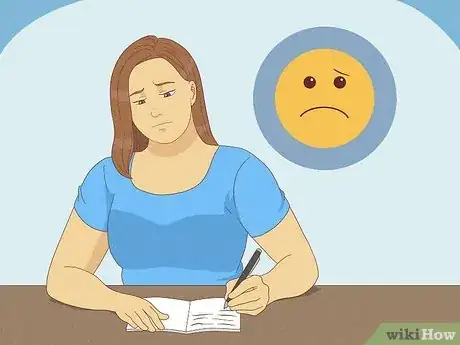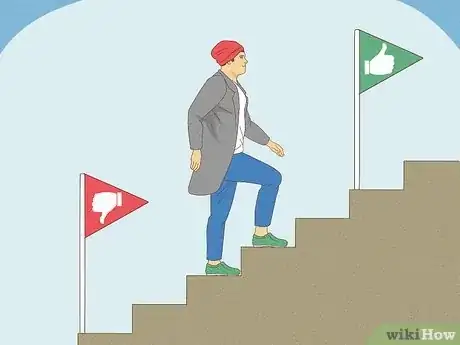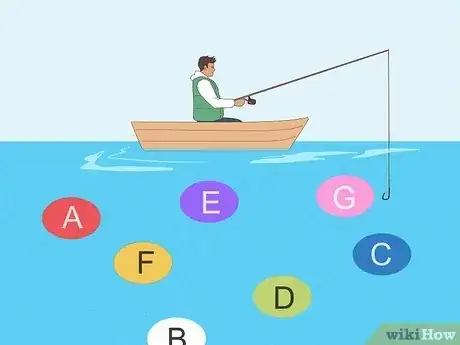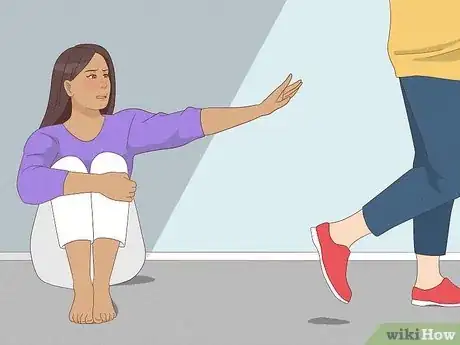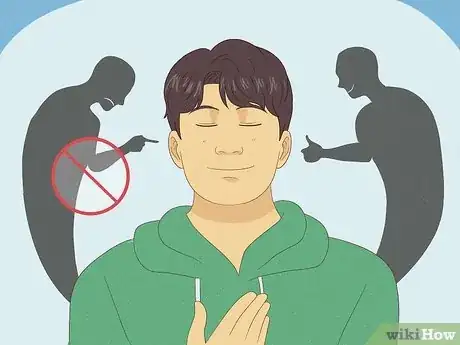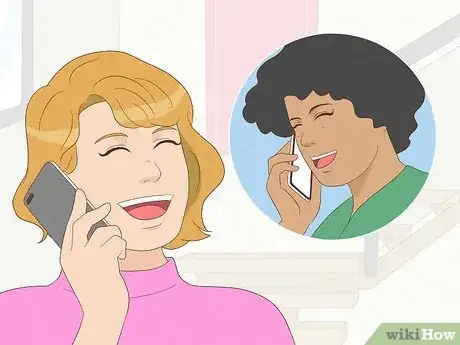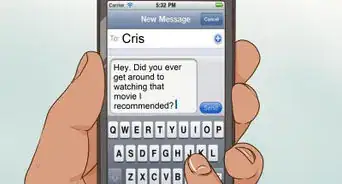This article was co-authored by Susan Pazak, PhD and by wikiHow staff writer, Caroline Heiderscheit. Dr. Susan Pazak is a Licensed Clinical Psychologist & Professional Life Coach. With more than 21 years of experience, she specializes in treating adolescents and adults with psychological issues using cognitive behavioral therapy, symptom reduction skills, and behavior modification techniques. She has been featured in numerous media outlets and shows, including “My Strange Addiction". Dr. Pazak holds a BA in Psychology with a minor in Communications from The University of Pittsburgh, an MA in Clinical Psychology from Pepperdine University, and a PhD in Clinical Psychology from Alliant International University.
There are 9 references cited in this article, which can be found at the bottom of the page.
wikiHow marks an article as reader-approved once it receives enough positive feedback. In this case, 80% of readers who voted found the article helpful, earning it our reader-approved status.
This article has been viewed 334,295 times.
Rejection can be completely heartbreaking. When you finally put yourself out there only to be turned down, it can feel extremely difficult – even impossible – to get over. Rejection can make us terrified of taking risks, for fear of shouldering that pain all over again. The truth is, though, the best things in life take a little risk. There are so many simple, effective ways to improve how you get over rejection. For everything you need to know, read on.
Steps
Expert Q&A
-
QuestionHow do you recover from a romantic rejection?
 Susan Pazak, PhDDr. Susan Pazak is a Licensed Clinical Psychologist & Professional Life Coach. With more than 21 years of experience, she specializes in treating adolescents and adults with psychological issues using cognitive behavioral therapy, symptom reduction skills, and behavior modification techniques. She has been featured in numerous media outlets and shows, including “My Strange Addiction". Dr. Pazak holds a BA in Psychology with a minor in Communications from The University of Pittsburgh, an MA in Clinical Psychology from Pepperdine University, and a PhD in Clinical Psychology from Alliant International University.
Susan Pazak, PhDDr. Susan Pazak is a Licensed Clinical Psychologist & Professional Life Coach. With more than 21 years of experience, she specializes in treating adolescents and adults with psychological issues using cognitive behavioral therapy, symptom reduction skills, and behavior modification techniques. She has been featured in numerous media outlets and shows, including “My Strange Addiction". Dr. Pazak holds a BA in Psychology with a minor in Communications from The University of Pittsburgh, an MA in Clinical Psychology from Pepperdine University, and a PhD in Clinical Psychology from Alliant International University.
Licensed Clinical Psychologist & Professional Life Coach Make a list of all your positive qualities and turn them into an affirmation list. You might include things like "I am smart," "I am kind," and "I am fabulous." Meditate on this list in the morning, middle of the day, and at night. As you meditate and affirm yourself, choose to believe that this too shall pass and that someone better is meant for your future.
Make a list of all your positive qualities and turn them into an affirmation list. You might include things like "I am smart," "I am kind," and "I am fabulous." Meditate on this list in the morning, middle of the day, and at night. As you meditate and affirm yourself, choose to believe that this too shall pass and that someone better is meant for your future.
References
- ↑ https://www.loveisrespect.org/resources/dealing-with-rejection/
- ↑ Susan Pazak, PhD. Licensed Clinical Psychologist & Professional Life Coach. Expert Interview. 22 February 2022.
- ↑ https://www.loveisrespect.org/resources/dealing-with-rejection/
- ↑ Susan Pazak, PhD. Licensed Clinical Psychologist & Professional Life Coach. Expert Interview. 22 February 2022.
- ↑ https://www.loveisrespect.org/resources/dealing-with-rejection/
- ↑ Susan Pazak, PhD. Licensed Clinical Psychologist & Professional Life Coach. Expert Interview. 22 February 2022.
- ↑ https://blogs.chapman.edu/career/2021/04/15/dealing-with-rejection/
- ↑ Susan Pazak, PhD. Licensed Clinical Psychologist & Professional Life Coach. Expert Interview. 22 February 2022.
- ↑ https://www.mayoclinic.org/healthy-lifestyle/stress-management/in-depth/positive-thinking/art-20043950
- ↑ https://blogs.chapman.edu/career/2021/04/15/dealing-with-rejection/
- ↑ https://psychcentral.com/blog/finding-the-source-of-your-fears#1
- ↑ Susan Pazak, PhD. Licensed Clinical Psychologist & Professional Life Coach. Expert Interview. 22 February 2022.
- ↑ https://youthempowerment.com/challenging-negative-self-talk/
- ↑ Susan Pazak, PhD. Licensed Clinical Psychologist & Professional Life Coach. Expert Interview. 22 February 2022.
- ↑ https://teenhealthsource.com/relationships/dealing-with-rejection/
- ↑ https://rightasrain.uwmedicine.org/body/food/healthy-eating-for-resilience
- ↑ https://teenhealthsource.com/relationships/dealing-with-rejection/
- ↑ Susan Pazak, PhD. Licensed Clinical Psychologist & Professional Life Coach. Expert Interview. 22 February 2022.
- ↑ https://www.psychiatry.org/patients-families/psychotherapy



